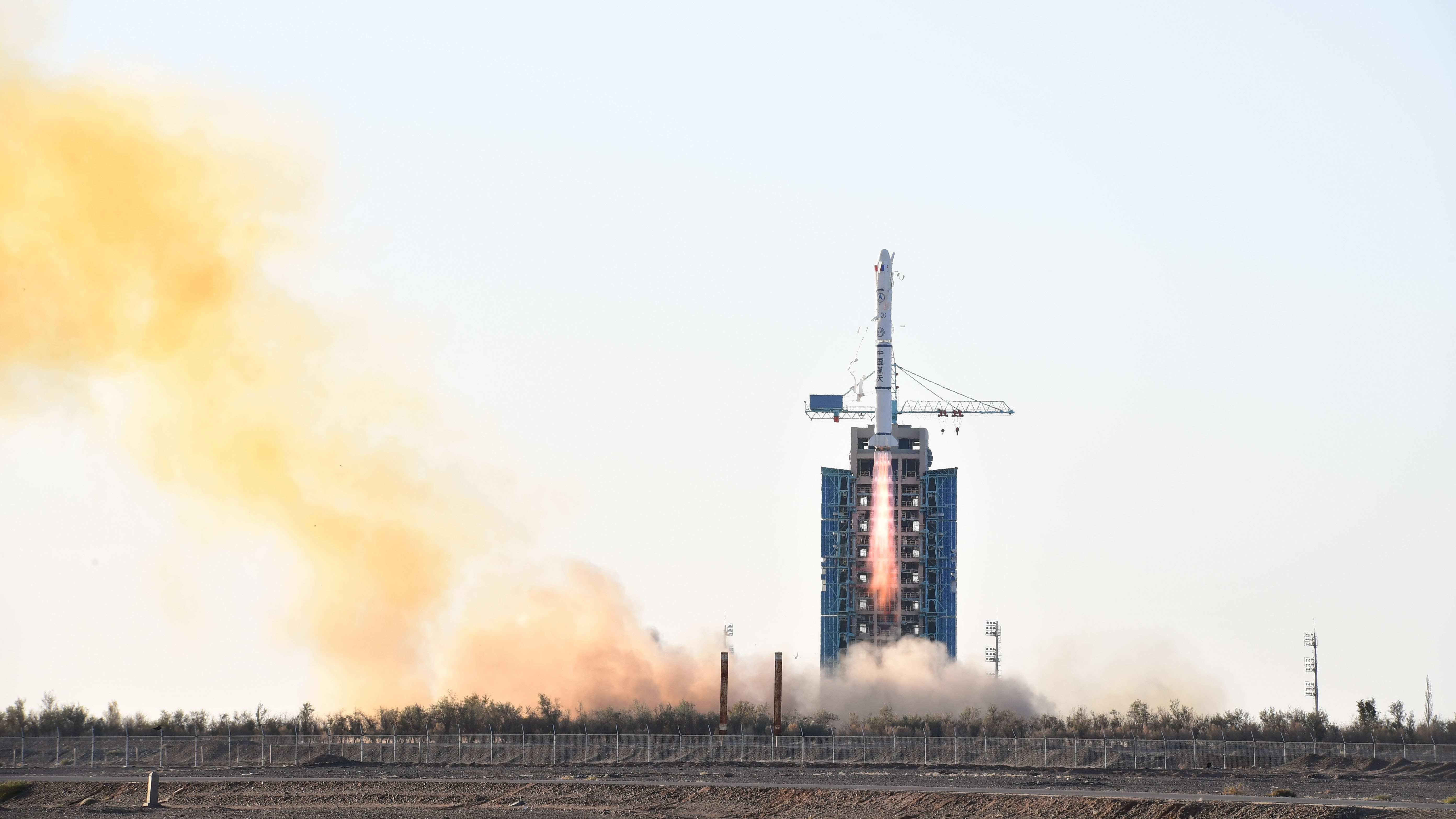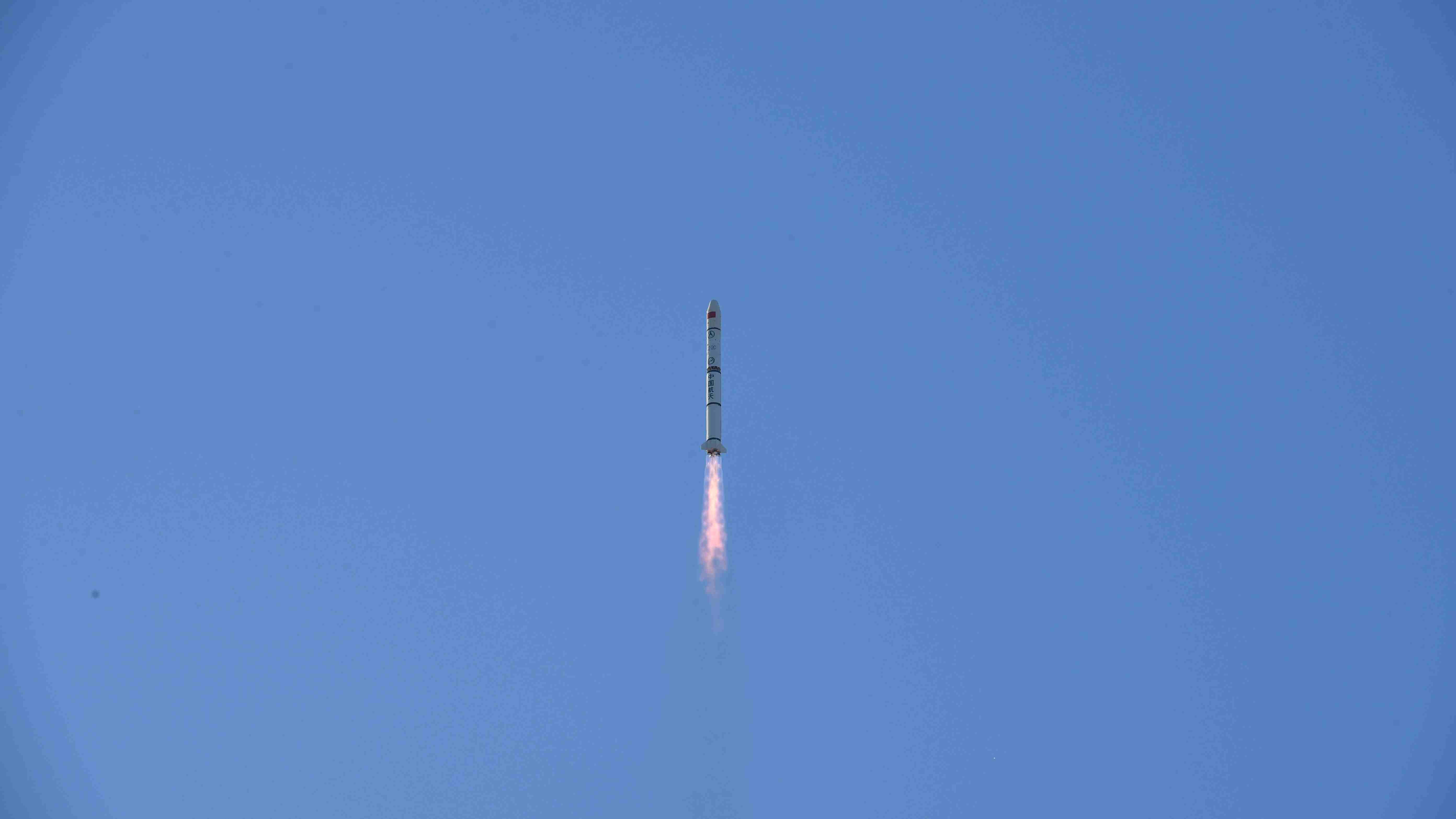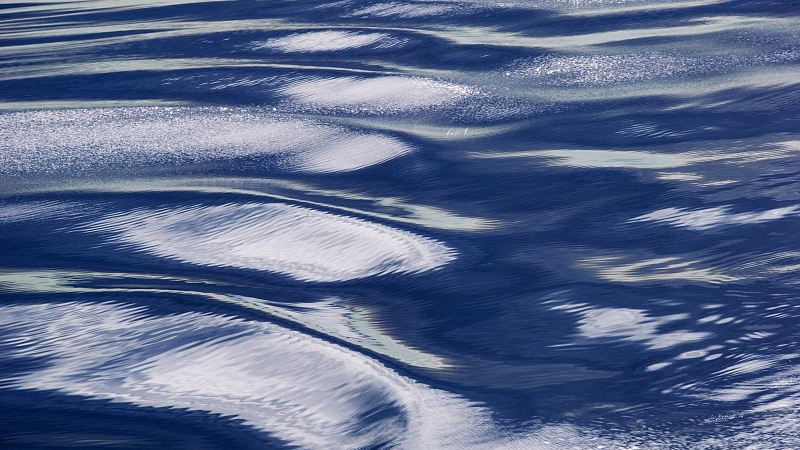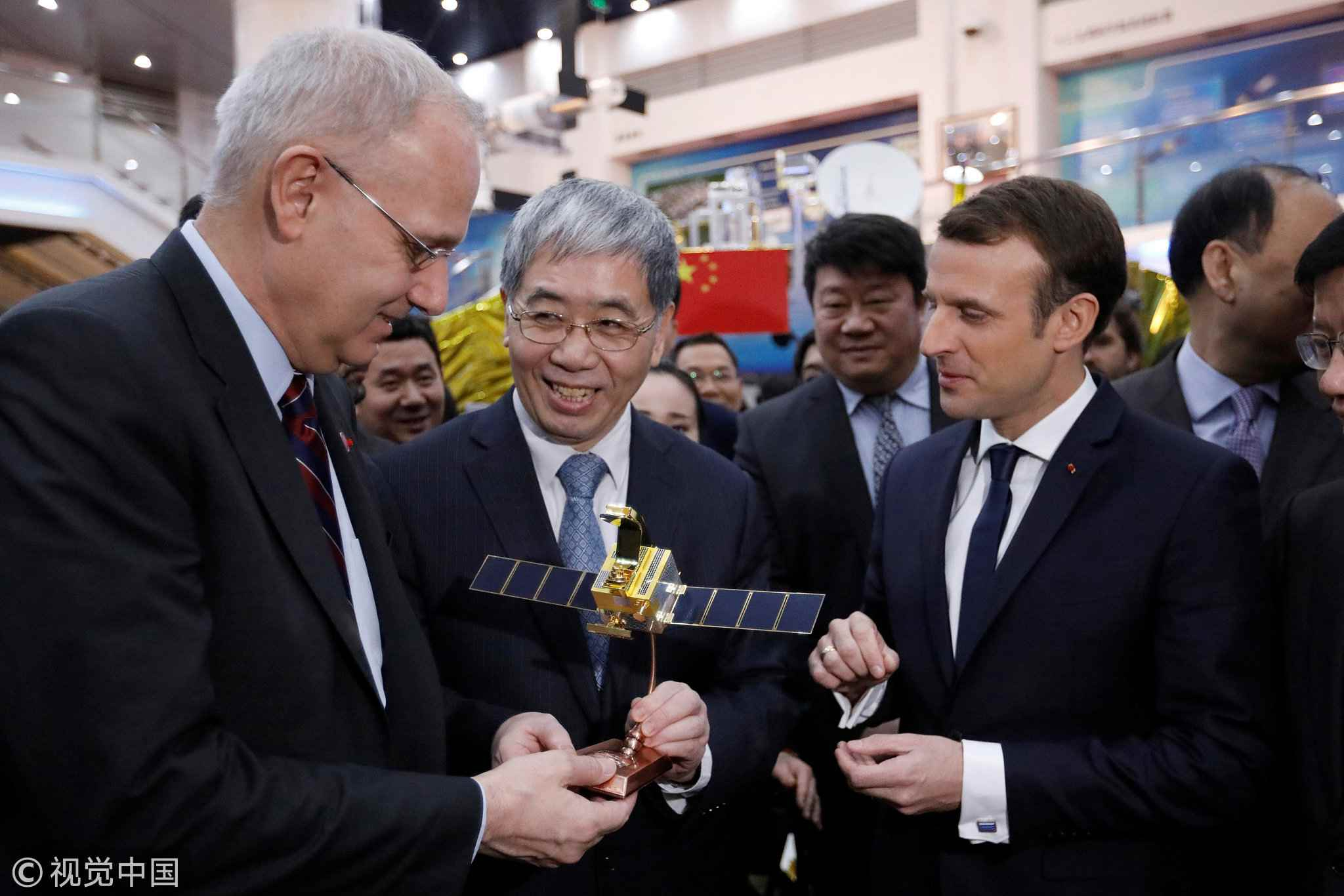01:01

China and France have stepped up efforts to fight climate change with a bold new scientific venture. The first oceanographic satellite jointly developed by the two countries was successfully launched at Jiuquan Satellite Launch Center on Monday, via a Long March carrier rocket.
The satellite, named CFOSAT (China-France Oceanographic Satellite), will be sent into a 519-kilometer-high orbit to provide 24/7 observation services to the researchers in both countries.
It will help people improve the understanding of the interaction between the oceans and atmosphere, and help model and tackle climate change.

The Long March 2C rocket lifted off carrying the first oceanographic satellite jointly developed by China and France from Jiuquan Satellite Launch Center, October 29, 2018. /Photo via Jiuquan Satellite Launch Center
The Long March 2C rocket lifted off carrying the first oceanographic satellite jointly developed by China and France from Jiuquan Satellite Launch Center, October 29, 2018. /Photo via Jiuquan Satellite Launch Center
Carried into space aboard a Long March 2C rocket, the observation system carries two important radar instruments: a French system designed to measure the direction and wavelength of ocean tidal patterns, and a Chinese apparatus, which focuses on wind strength and direction.
"This is the first time in the world that a satellite will monitor ocean surface winds and waves at the same time. It's also the first time both French and Chinese radar instruments will be applied together in one project," said Wang Lili, chief of China-France Oceanography Satellite project.
Besides waves forecast and monitoring, it will also conduct research in floating ice, polar glacier and ocean dynamics.

The satellite will help people improve the understanding of the interaction between the oceans and atmosphere, and help model and tackle climate change. /VCG Photo
The satellite will help people improve the understanding of the interaction between the oceans and atmosphere, and help model and tackle climate change. /VCG Photo
"For the ground system, we provide two earth stations, located at the earth pole that could be able to make some real-time collection of the data. And we also provide the mission center, able to process the data," said Patrick Castillan, chief of the French National Space Research Center.
In practical terms, the satellite will be used to improve forecasts of strong storms, evacuate people in coastal areas in advance and help ensure maritime safety based on the study of wave patterns, said Liu Jianqiang, deputy director of Ocean Satellite Center of China's Ministry of Natural Resources.
The monitoring data will be shared by scientists from both countries and will also be available for scientists around the world to help them improve climate models by better understanding how oceans affect the atmosphere.
Sino-French space cooperation

French President Emmanuel Macron (R) and Jean-Yves Le Gall (L), president of the Centre National d'Etudes Spatiales (CNES), receive a scale model of the China-France Oceanography Satellite during a visit to the China Academy of Space Technology in Beijing, China, January 10, 2018. /VCG Photo
French President Emmanuel Macron (R) and Jean-Yves Le Gall (L), president of the Centre National d'Etudes Spatiales (CNES), receive a scale model of the China-France Oceanography Satellite during a visit to the China Academy of Space Technology in Beijing, China, January 10, 2018. /VCG Photo
The effort was first conceived as part of a 2005 deal between the two countries' science communities. In the 13 years since, French and Chinese researchers have worked together to make the dream a reality.
In 1997, the two governments signed an agreement in the peaceful use of outer space, marking the first cooperation in the space field.
The joint project, China-France Oceanography Satellite, initiated by the French National Space Center and China's National Space Administration, is the second collaboration between the two institutions.
The two sides also plan to launch a SVOM astronomical satellite in 2021 to detect space gamma-ray bursts, the most powerful explosions in the universe.





